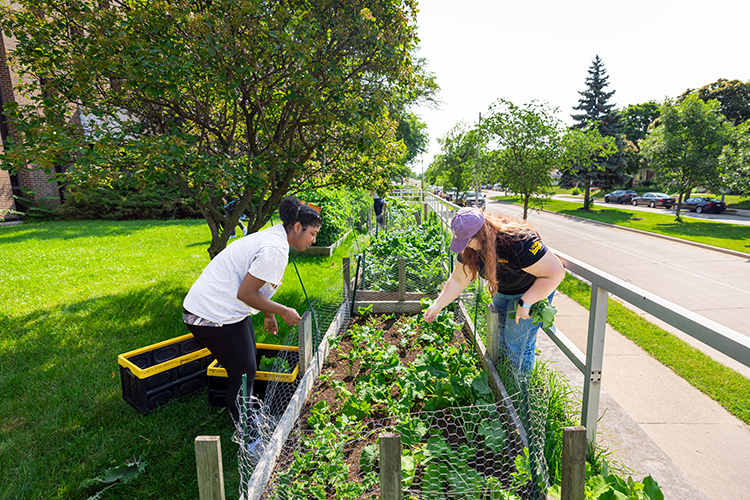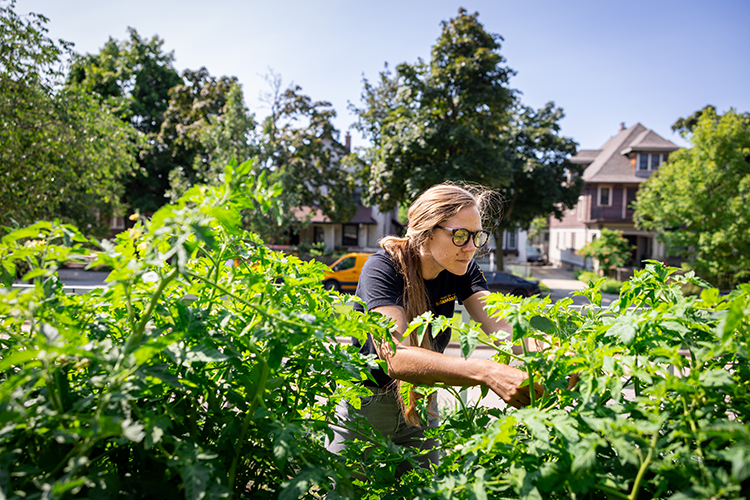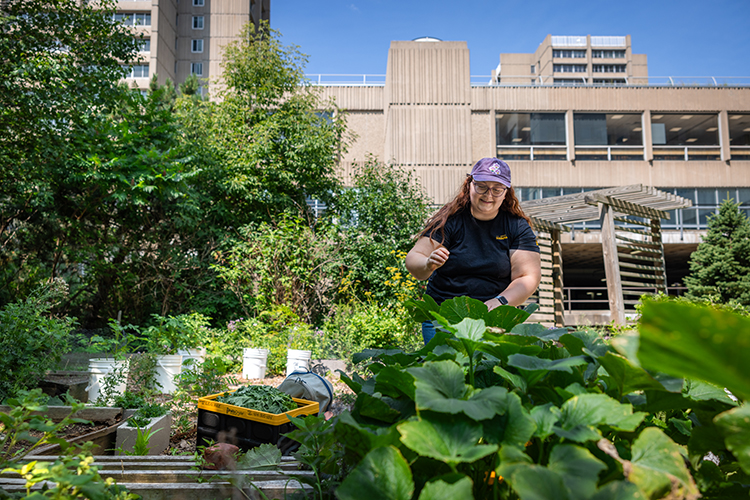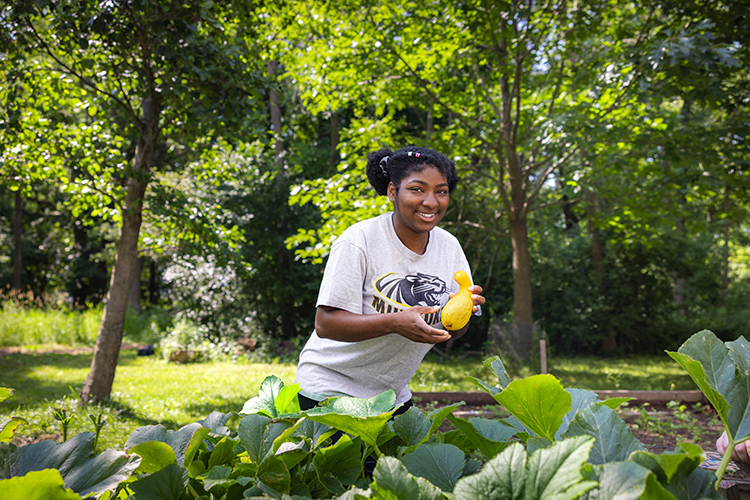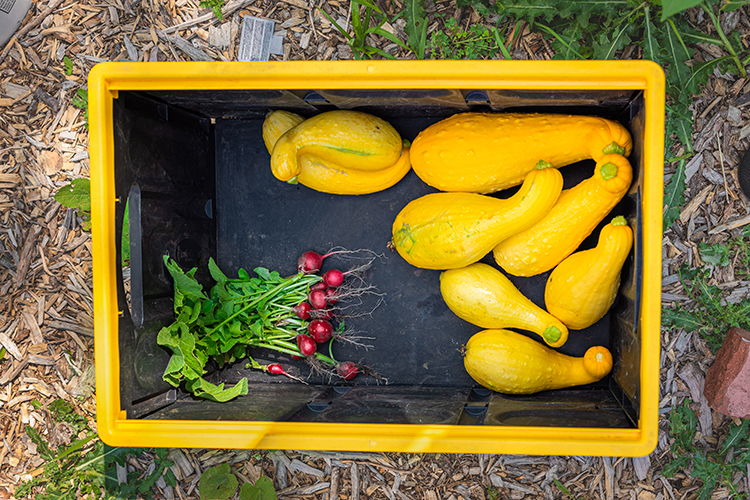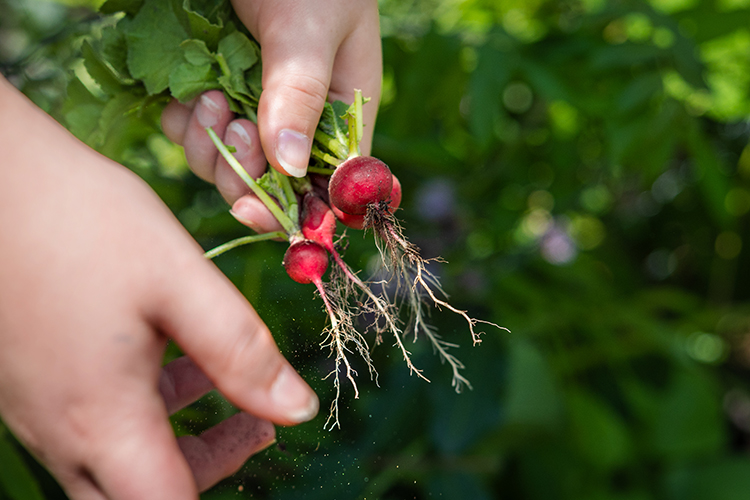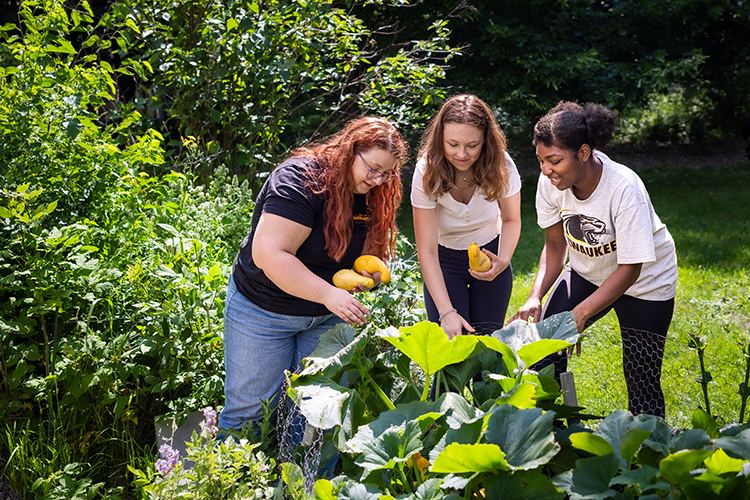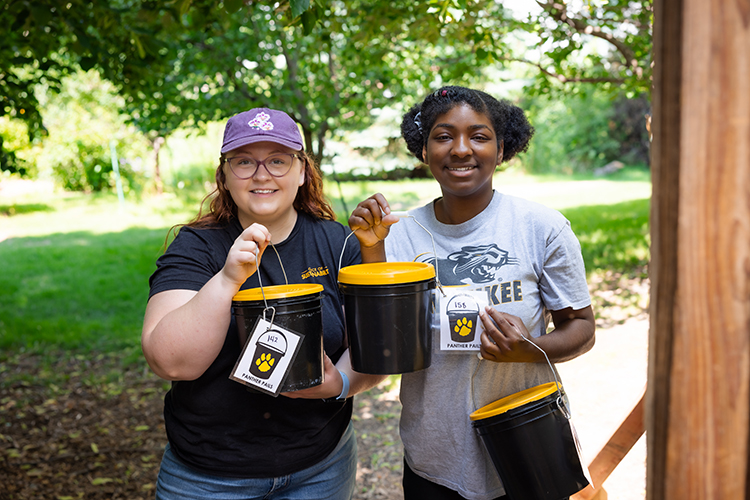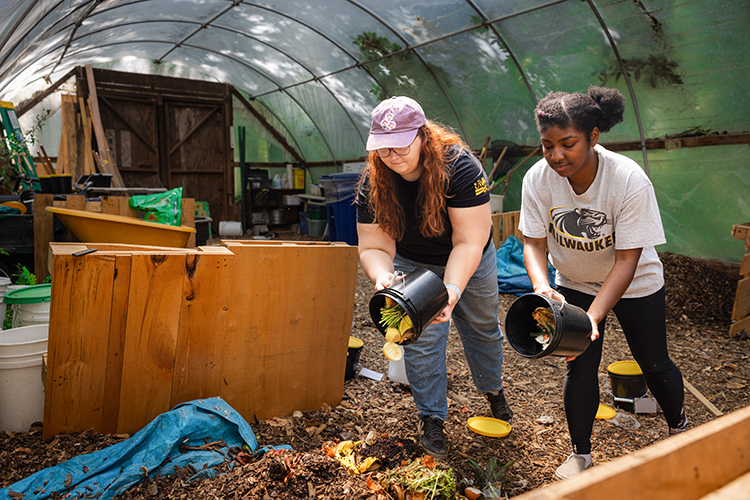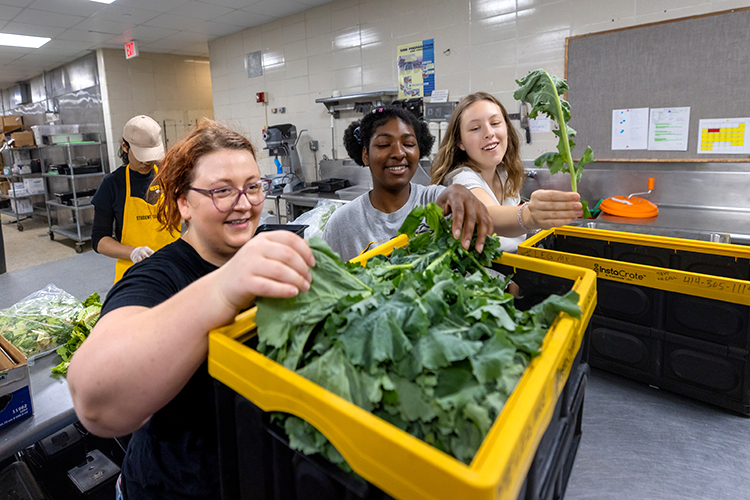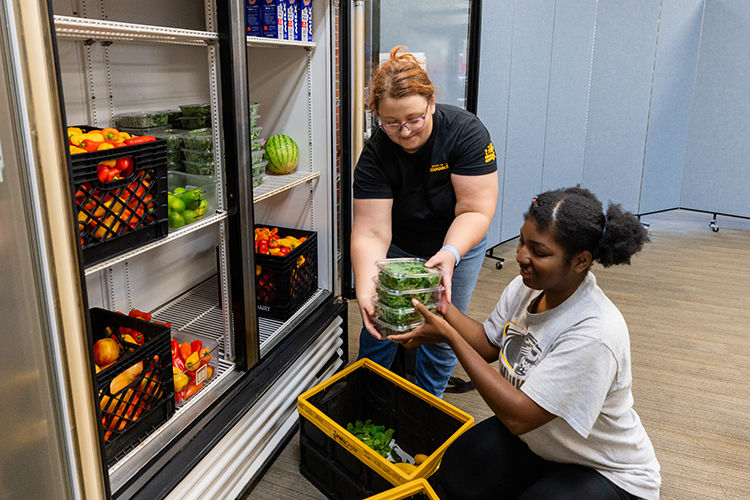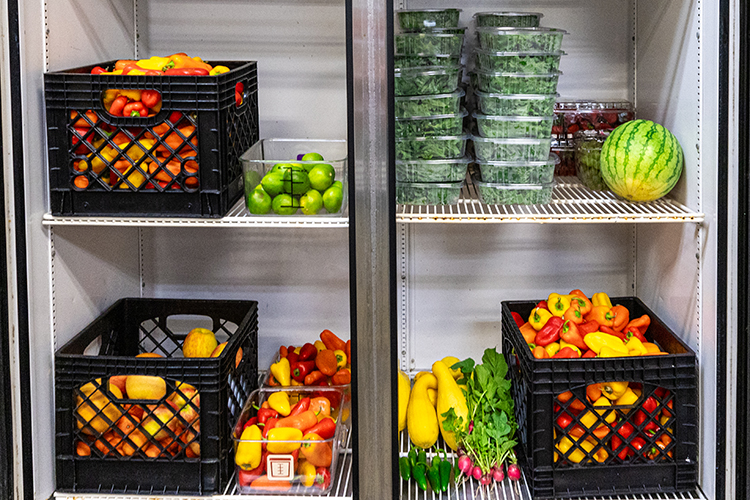Gardens and composting are important parts of sustainability at UWM. Hundreds of pounds of produce are grown each summer on raised garden beds on campus and donated to the university food pantry, and thousands of pounds of compost is produced each year from food scraps.
In 2011, the UWM Food and Garden Club and the Office of Sustainability brought campus gardens back to UWM after more than a 60-year hiatus. Volunteers from across campus came together and built 50 raised bed gardens on the south lawn of the Physics building.
From a collaborative student design, a second campus garden was built in spring 2012 next to the Sandburg Residence Hall East Tower. To the north of Sandburg Hall, a fruit orchard was planted on Earth Day 2017 with students and community partners.
When the COVID-19 pandemic struck, food insecurity for students was exacerbated. In response, the Office of Sustainability shifted the focus of the gardens to providing fresh produce solely for the Food Center & Pantry.
In 2022, the Office of Sustainability launched the Student Supporting Agriculture Program (SSAP) to teach the skills and share the joys of food gardening and healthy eating with students. The program focuses on resiliency, local food systems, holistic learning and practical skills.
Student volunteers in the program help grow, process and deliver hundreds of pounds of fresh produce to the UWM Food Center & Pantry each summer. Through a Green Fund project, SSAP in partnership with the Nutritional Sciences Club will add new hydroponics systems to campus to grow fresh produce year-round starting in fall 2023.
Collectively, the gardens at UWM serve the UWM Food Center & Pantry, provide space for applied research and learning, and support a vibrant community garden available to students, faculty and staff.
Composting turns waste into fertilizer
The mission of the composting program is to implement a more sustainable way of handling UWM’s waste. The Office of Sustainability collaborates with Restaurant Operations to keep kitchen scraps from entering the landfill, turns that waste into valuable fertilizer, and returns the finished soil back onto the gardens to grow more food.
UWM composts 200,000 pounds per year on average through two composting programs. The first is on-site composting: The Sandburg Café collects pre-consumer food scraps. Garden and compost assistants from the Office of Sustainability, along with volunteers, haul the kitchen scraps to the campus Hoop House, where the aerobic composting happens. After a few months of careful monitoring and microbe-assistance, those food scraps become a nutrient-loaded compost that the Office of Sustainability uses on garden plots all around campus.
The second program is through a contract with Compost Crusaders, which allows for more types of food waste to be composted.
Student, faculty and staff can take part in composting though the Panther Pails program. To do so, grab a clean bucket at the Sandburg Garden Hoop House and register here. What to put in the pail: coffee grounds, eggshells and scraps of fresh fruit and fresh vegetables.
